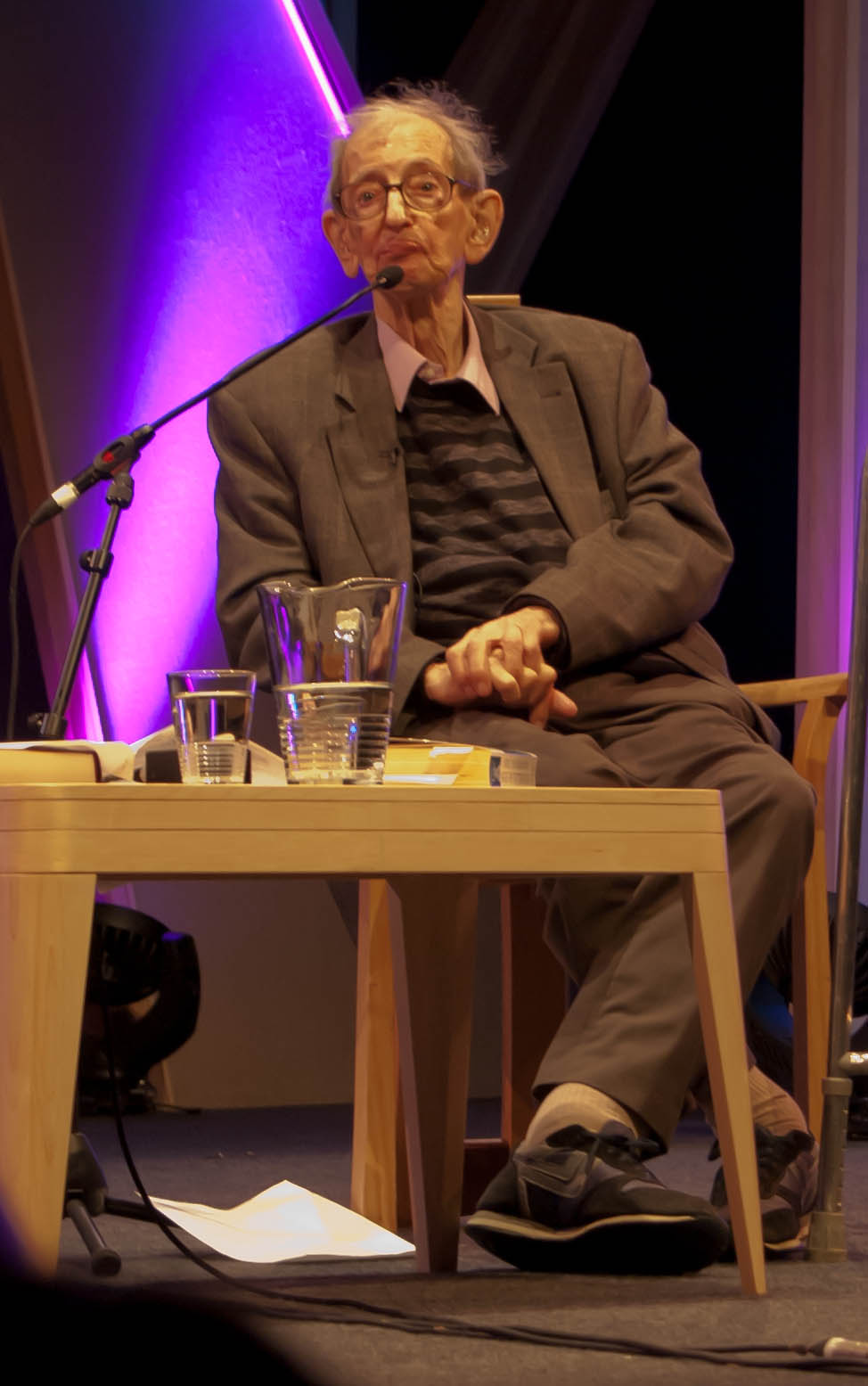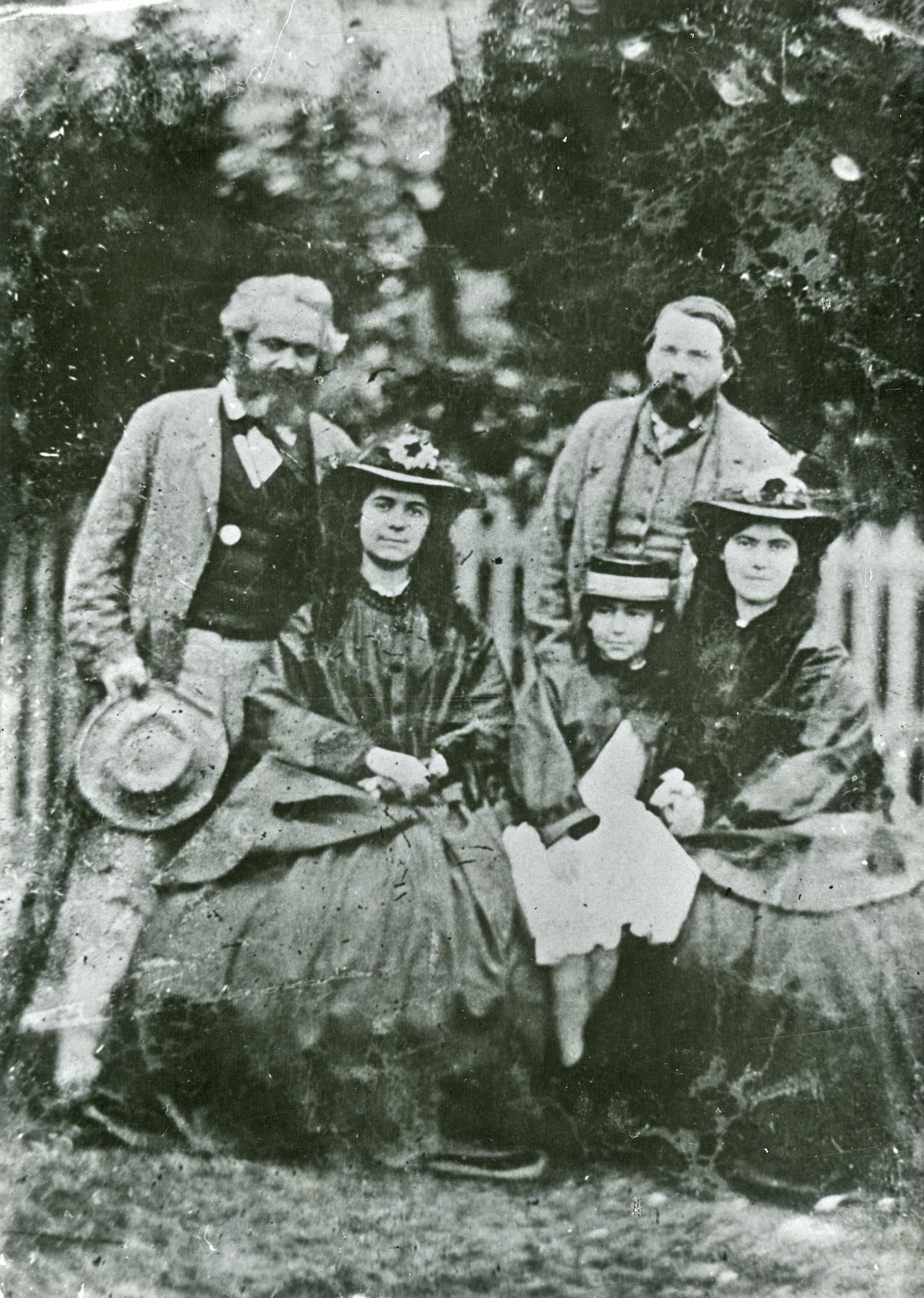Clio, Muse Of History
The brilliant blogger & economist Brad DeLong opens his economics class by giving a defense of economics as history, perhaps the unique history of the 20th century. The history of the 20th century in this viewing is a Whig's history, perhaps an authentic one.
DeLong's world is one of amazing, galloping productivity increase - a world were man's ability to create and control comes to dominate all things, where even the will of heaven is a plaything of this global engine. A world of "growth", economically defined.
The great economist of inequality Branko Milanović politely fired back with a defense of Eric Hobshawm's "short twentieth century". Neville Morely, another economic historian, also came to Hobshawm's aid.
Uh, great photo of Hobshawm, Wikipedia
I'm not much of a Hobshawm scholar, in the sense that I've never read his books. In the same way, I'm the third best French speaker among my siblings. But it seems a reasonable gloss that in essence, Hobshawm saw the 19th century as the rise of Capitalism (as Marx saw it) and the 20th century as the rise of Communism (as actually existed in Russia and elsewhere). When you write this story, the 19th century is very long. Surely it was already starting in 1776, as Adam Smith's analysis of Capitalism needed a Capitalism to analyze. Also, there was some kind of political revolution in that year of slight importance. Surely this phase of history was still present in the actual Leopoldville of the 1950's. Not only was the 19th century very long - it was unevenly distributed.
The distribution of actually existing Communism in that "short 20th century" was also mercifully uneven.
General Mobutu
The facts are not open to doubt. The 20th century opened with a demon haunted world embroiled in imperial depredations and closed with ... if not "freedom" per se, at least significant bourgeois freedom ("Freedom's just another word for 'Nothin' Left To Lose' ... and nothin' ain't worth nothin', but it's free..."). When a Belgian hit squad (with US money) killed Lumbumba and burned away his bones with acid, they still could not install a Belgian government. Instead, the Congo got the fearsome General Mobutu. Mobutu was many things: a violent hypocrite who took Western money and condemned foreigners with equal ease, an embezzler and inflationist - but one thing he was not was Belgian. No amount of cruelty would return the old empires. There was no want of trying. De Gaulle can cry out for "Algerian France" all he wants, it made no difference. Times were somehow ... somehow different. This is a story worth telling, an understanding worth coming to.
Engles, Marx and three of the Jenny Marxes
A specter floats behind this debate. The specter of Karl Marx. Not communism, Communism, Actually Existing Communism, c0mnU1sm or anything like that. But Karl Marx, the German born philosopher, socialist, economist, journalist, etc. with his carbuncles and his Party and his beloved wife and daughters. How does Hobshawm's view fit with Marx's exactly? It seems that there is an underlying idea in Hobshawm that Stalin or Mao or ... was the realization (or a direct precursor to the realization) of Marx's epic tale of historical progress from primitive communism to ... well, Communism. But Russia, China, the Congo, Vietnam, North Korea, etc. etc. etc. were not late capitalist societies that underwent a fall in the rate of profit making collapse of the Capitalist systems and the rise of Communist ones inevitable. They were agrarian empires. Frankly, they were all sorely lacking in capital. The organic composition of capital in those countries was ... to be honest, still pretty damn organic. The outlines of Hobshawm's story as I understand them are not compatible with the outlines of the Marxist story as I understand them.
The Marxist story as I understand it is a (precursor to? perhaps a bitter uncle ...) DeLong's story! DeLong's is a story of changes in the organic composition of capital - no, we can be more clear. In the language of this post, DeLong's is a story of the distribution matrix changing through time in ways that cause \( \lambda \) to fall to near 0, which is just a way of saying that the maximum rate of profit is rising by leaps and bounds.
John Maynard Keynes
It's interesting, since I feel that if DeLong were to nominate a man for economist of the 20th Century, he would nominate John Maynard Keynes, the great slayer of Say's Law. The 20th Century is surely the century of the Great Depression and WWII. Were these times of galloping productivity? Everyone believes in Say's Law when the discussion is not about Say's Law - even you and me (and, yes, even Keynes made mistakes like this). DeLong implies but does not state that the long run history is a full employment history. He implicitly assumes that a balanced growth path is an acceptable behind the scenes driver of history.
I'm not so sure the 20th century will be remembered in this way.
E P Thompson
But let's go back to Hobshawm. I can't make sense of what I've read of him in terms of what I've read of Marx. What I've read of Hobshawm reminds me much, much more of E.P. Thompson. Thompson wrote of artisans and William Blake resisting capital deepening through moral action. Thompson had a beautiful, Blakean vision of a socialist state: "I am going to create a world of beauty. My eyes will see as through a new mind."*
Okay, Thompson's vision was incredibly vague and its relationship with Marx more elective affinity than anything comprehensible. Leszek Kołakowski rightly ridiculed Thompson on these grounds. It's difficult for me to understand these Thompson and Hobshawm characters, being a vastly different age and temperament. But I think that I can.
Let me tell you a story. It's a story about a pencil. I am holding it in my hand right now. To make this pencil, trees had to be cut down, pulped and reglued to be soft enough to easily sharpen. Somebody when cutting down these trees cut themselves and bled on the wood. Their blood is in my hands. Aluminum ore had to be dug out of the ground, processed at great difficulty, pressed and painted. These miners are worked to the bone in non-union mines. Their sweat is in my hands. Paint had to be synthesized. Precursors to the chemicals making this unnaturally red paint had to be synthesized. Everything that happens in every one of those chemical factories is part of this pencil. Open pit graphite mines are giving miners lung cancer. Those deaths are on my hands, are they not? Forget the labor theory of value, it's a will-o'-the-wisp. Isn't the fact that those deaths and all that pain happened because I wanted a damn pencil just the plain meaning of imputation?
Economists have a word for the fact that everything in this world is connected - well, actually they have dozens of words for hundreds of the closely related concepts that capture this idea with precision. Their special word is "equilibrium". Equilibrium means me, you, Sumatran loggers and Chinese graphite miners are all trapped in a single point in price space (which may be infinitely dimensional, or even have continuously many dimensions!) trapped unable to move. The tar that sticks us to this point has many names, the names of the great theorists: Nash, Pareto, Walras, Bayes ...
I don't fault Hobshawm or Thompson for cowering before this beautiful and horrifying vision.. It is a terrifying vision - whether set out by Marx or Walras. It is the real world in which we live, with all that implies. It is important to understand that. But I can and will fault them for not seeing that other visions can be equally or more terrifying. That they could let themselves only see the good of Stalin, Mao and Ho Chi Minh while fearing and hating bank managers and their ilk is something I can and will fault them for.
Hobshawm had to admit that Stalin did not create a world of beauty. Communist Poland was not a world of beauty. The idea of a short 20th century is a tacit, backhanded way of making this admission.
I prefer to be more direct.
The Long 20th Century?
So, the question becomes: Is the 20th Century the century of Marx's ideas (as DeLong thinks - after a fashion) or of Marxist parties (as Hobshawm seems to think)? Or perhaps it was the story of John Maynard Keynes and Milton Friedman, a story of uneven progress with the promise of balance. Perhaps it is the story of Lumumba & Mobutu, or the Park family versus the Korean people or Nixon or... Maybe it is billions of stories babbling from their intertemporal equilibrium trap.
In the end, I am on the side of Hume, such metaphysical talk should be burned for warmth...
*I cheated here. This is actually a quote from the 2002 cartoon Ghost In The Shell: Stand Alone Complex. It just captures beautifully what they wanted to say.






Touché... Well dug, Old Mole!
ReplyDelete